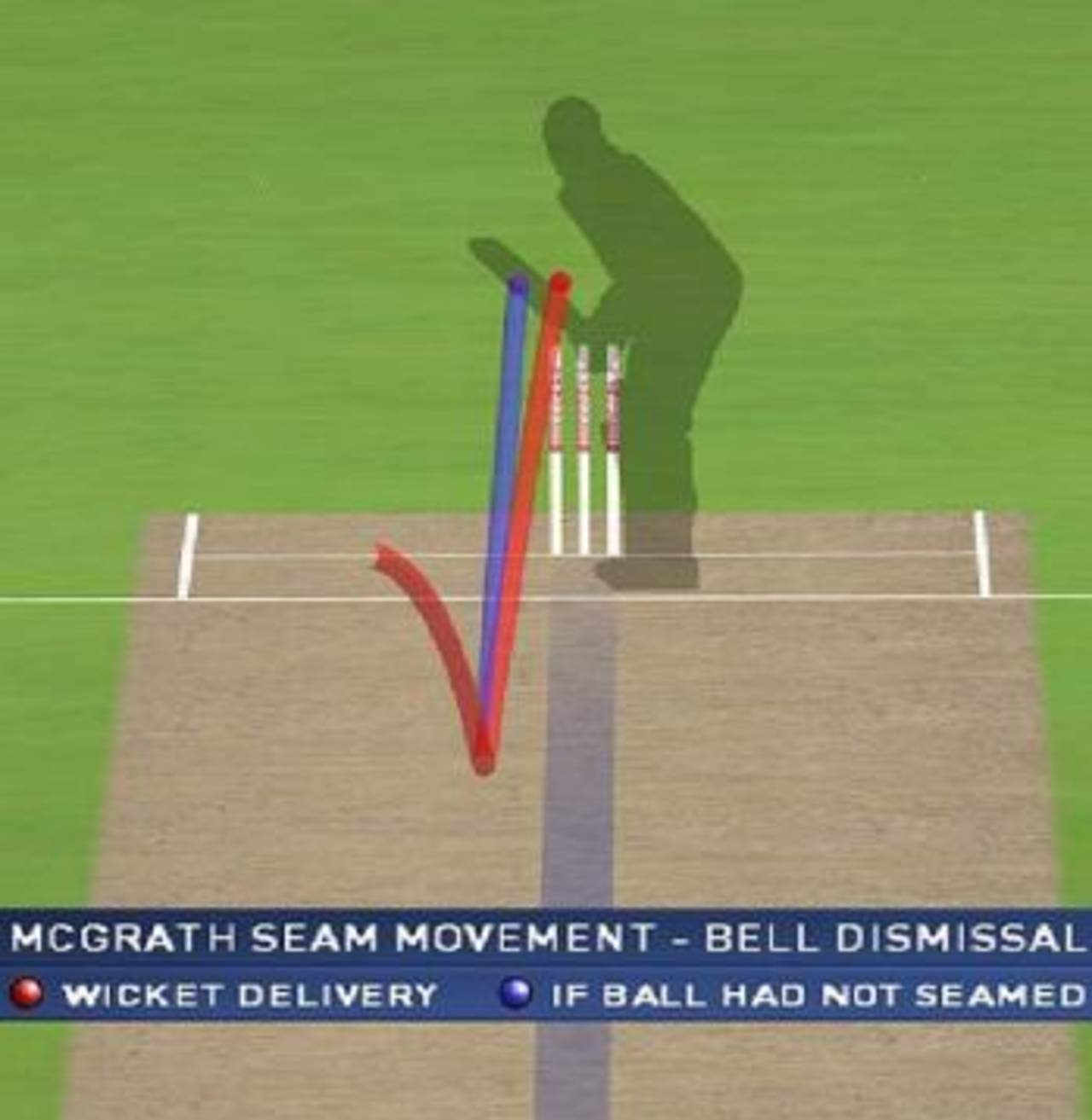Holding not a fan of ball-tracking technology
Former West Indies fast bowler and noted commentator Michael Holding has backed the use of technology in umpiring decisions, though he believes ball-tracking should be done away with since it is inaccurate
ESPNcricinfo staff
06-Jul-2011

Michael Holding is a fan of the pitch mat, but not of ball-tracking technology • Hawk-Eye Innovations
Former West Indies fast bowler and noted commentator Michael Holding has backed the use of technology in umpiring decisions, though he believes ball-tracking should be done away with since it is inaccurate. During last week's annual conference, the ICC - following the BCCI's sustained opposition to ball-tracking - decided to do away with it as one of the compulsory technological aids for decision-making, while making the DRS mandatory in ODIs and Tests.
"I have never been a fan of the projected path of the ball," Holding said during a round-table discussion at the MCC Spirit of Cricket lecture. "What HawkEye has produced with regards to the actual path of ball, where the ball has landed and where it has gone on to hit whatever - the bat or the pad - I am 100% happy with that.
"The projected path of the ball [though] is a calculation. Obviously it has a margin of error, [but] they won't call it that since they don't want to hear the word 'error'. That's why whenever it is hitting the stumps or projected to be hitting the stumps, they leave it to the umpire's call. If you are leaving it to the umpire's call, that means you are thinking whatever you are showing is not 100% correct … So everything except the projected path I am happy with."
While paring down the DRS, the ICC also rejected the visual aid provided by the pitch mat, again on the BCCI's insistence, a move that Holding criticised. "That mat is placed there by an immovable camera," he said. "[It shows] where the ball is being pitched, and that has been shown to be 100% correct, so I have no problems with that. I don't see why India don't want to use it."
Holding was critical of the BCCI's inordinate power in running the world game, an issue that has been discussed widely following the manner in which decisions were made at the conference. "I don't believe any country should be able to dictate to the world, whatever game it is," he said. "Brazil dominated football for many World Cups. They could not go to FIFA and say 'this is what we want in the next World Cup'. [But] They could never ever dictate the path of the sport.
"As far as I am concerned, it is the organisation running the game that should dictate the path. I am seeing an individual board dictating certain things, which I cannot agree with."
Andrew Strauss and Kumar Sangakkara, who have captained in matches with the DRS in use, were supportive of the use of technology in decision-making, though they differed in their opinions over the implementation of DRS. Sangakkara wanted umpires to use technology at their discretion, without the players having to review decisions, while Strauss was happy with the existing system.
"It adds to the spectacle of the game when the players can challenge decisions, the crowds like it, and it gives the captains decisions to make, some of them strategic as to when and against which players you might use your calls," Sangakkara said. "At the same time, I am a great believer in leaving it to the three umpires; if they need assistance to make their decision, let them ask for that. And allow the three umpires to sort it out among themselves."
Strauss said the DRS was good for cricket since it helped in getting better decisions and did not undermine umpires. "I must admit I had problems with DRS when it was first mooted. I worried about players being involved in the decision-making process - it is very contrary to what the game of cricket is all about, which is that the umpires make the final decision," Strauss said. "But having seen it work, and having seen umpires get used to the idea, I don't think they feel so much undermined now.
"A lot of the times the best umpires come out with their reputations enhanced by the DRS. I think everyone has got used to it, and we get more decisions right as a result of it, therefore it is for the betterment of the game of cricket."